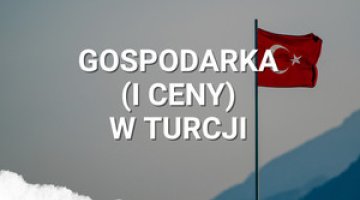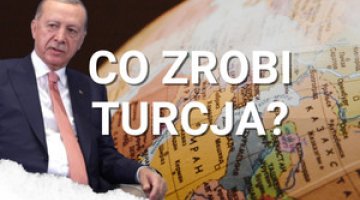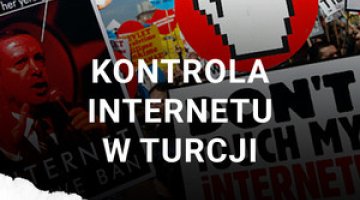Awaiting a verdict. Turkish opposition under pressure
On 15 September, a court in Ankara decided to postpone proceedings concerning the general congress of the Republican People’s Party (CHP) until 24 October. The main opposition party had feared a ruling that could remove Özgür Özel from his position as party leader and reinstate Kemal Kılıçdaroğlu. The CHP considers the proceedings a politically motivated attempt to interfere in the political arena through judicial means.
The decision to postpone the case does not mark the end of the party’s troubles. The aim of the Turkish authorities appears to be transforming the CHP into a controlled opposition – internally divided, ineffective, and incapable of taking power. The neutralisation of the party is intended to help President Recep Tayyip Erdoğan and the ruling Justice and Development Party (AKP) to maintain their grip on power. Thus, since the beginning of the year, CHP has been under continuous pressure from a politicised judiciary, while the ruling camp has sought to stoke internal tensions within the party. It is highly likely that the government will continue its efforts to remove Özel from his position as party leader.
A possible precedent for a ruling against Özel is the decision issued by another court on 2 September to dismiss Özgür Çelik from his post as head of the CHP’s Istanbul branch. The party congress that elected him was declared invalid due to alleged irregularities, and a state-appointed trustee board was introduced, headed by Gürsel Tekin, a former CHP politician with ties to Kemal Kılıçdaroğlu. This move was met with resistance from within the CHP. On 8 September, party members and supporters obstructed Tekin and accompanying police officers from entering the party’s Istanbul headquarters. Following clashes with law enforcement, the authorities imposed a ban on public gatherings in selected districts of Istanbul, and the protests were accompanied by restricted access to social media platforms.
From unelectable party to poll leader...
In recent years, the CHP has become a genuine political threat to the AKP and President Erdoğan. In 2023, Kemal Kılıçdaroğlu lost the party leadership, ending a tenure that began in 2010. During this period, he steered the CHP through five parliamentary elections, as well as two presidential contests, local elections, and referendums without securing a single victory. The party’s greatest success under his leadership came in 2019, when its candidates won the local elections in Ankara and Istanbul. Nevertheless, Kılıçdaroğlu succeeded in redefining the party’s identity. Historically viewed as rigidly secular and therefore unelectable among large segments of Turkey’s conservative society, the CHP broadened its appeal by opening up to figures with more traditional values. However, Kılıçdaroğlu lost legitimacy both within the party and its electorate after his defeat to Erdoğan in the May 2023 presidential election. His decision to run was widely criticised, particularly since opinion polls indicated that other CHP figures – most notably the mayors of Ankara, Mansur Yavaş, and Istanbul, Ekrem İmamoğlu – had a better chance of winning.
That defeat triggered a crisis within the party, culminating in a leadership change in November 2023, when Özel – backed by İmamoğlu – took over as chairman of the CHP. Under Özel’s leadership, the party achieved its greatest success to date. In the local elections of March 2024, it not only retained control of major cities but also gained new provinces and, for the first time in its history, recorded the highest vote share nationwide (see ‘Turkey: opposition wins local elections’). The CHP has since consistently led parliamentary opinion polls, a trend confirmed by the most recent data. According to the August average, the party remains in first place with 31.9%, ahead of the AKP at 30.6%. In presidential polling, İmamoğlu has outperformed not only President Erdoğan but also other potential candidates from the ruling party.
The opposition’s rising poll numbers have been bolstered by widespread public discontent driven by Turkey’s prolonged economic troubles. Since becoming party leader, Özel has effectively capitalised on this sentiment. In numerous speeches, he has criticised the government for its mismanagement of the economy, arguing that it primarily serves the interests of connected elites rather than workers and the middle class. He has consistently highlighted the soaring cost of living. At the same time, the Özel–İmamoğlu duo has modernised the CHP, grounding its strategy in detailed voter analysis, a positive presence on social media, and direct engagement with the electorate. Their high level of public activity has created the impression that the CHP, rather than the AKP, is now leading the way in shaping domestic political trends.
...and from irritation to the need for neutralisation
The ruling bloc’s concern began as early as March 2019, when İmamoğlu won the Istanbul local election. The Supreme Election Council ordered a re-run of the vote. In the June repeat election, the CHP candidate not only won again but also increased his margin of victory over his AKP rival. Control of Istanbul was crucial for the ruling camp, as it provided access to vast financial resources essential for maintaining its clientelist networks. By securing these funds, the opposition was able to expand its ranks. As mayor, İmamoğlu quickly gained popularity through improvements to public transport and the introduction of urban social welfare programmes (such as free nurseries, subsidised canteens, and student scholarships). His competent management of Turkey’s largest city helped him to build his position as a potential presidential candidate and reinforced public belief that CHP politicians could be effective leaders.
The scale of the CHP’s victory in 2024, combined with the party’s continued lead in opinion polls, significantly intensified concern within the ruling camp. This is evidenced by the fact that, from that moment on, a campaign was launched to curtail CHP control in local governments at various levels, supported by politicised security services and the judiciary. In the current term alone, 15 CHP-affiliated mayors have been arrested, including 10 from Istanbul districts. The situation escalated sharply in March this year, when İmamoğlu and several of his close aides were removed from office and arrested. This move triggered the largest wave of public protests in Turkey in over a decade (see ‘Turkey: wave of protests following the arrest of Istanbul mayor’). The CHP sought to harness the momentum of the protest movement by organising solidarity actions in support of İmamoğlu and launching a consumer boycott targeting companies linked to the ruling party. Özgür Özel, in particular, led a highly active campaign during this period. Under his leadership, the party began openly calling for a snap parliamentary election, gathering 20 million signatures on a petition to that effect. In addition, the CHP initiated a series of regular mass meetings in various parts of the country. To date, more than 50 such events have been held.
The ruling bloc has accused Özel of inciting public unrest for the sake of internal power struggles within his own party. Pro-government media portray the CHP as preoccupied with seizing control of the state to serve the narrow interests of its politicians. They argue that Turkey needs an effective opposition focused on national issues, not on itself. These outlets are also promoting the idea of Kemal Kılıçdaroğlu returning as party leader, a move clearly aimed at fuelling internal divisions within the CHP. At the same time, AKP officials deny any political interference in the judiciary, insisting that the legal system operates independently.
An uncertain future
In June 2025, a court in Ankara launched proceedings concerning the 2023 general congress of the CHP, based on allegations of irregularities and vote-buying. The case was postponed on 15 September, most likely due to negative market reactions. On the day Çelik was removed from his post, Turkey’s main stock exchange index dropped by 5.5%. The increasingly authoritarian tendencies of the AKP government are also eroding the confidence of foreign investors. Political turmoil may threaten the government's economic recovery plans (see ‘Turbulent stabilisation: Turkish economy under Şimşek’s supervision’).
Another important factor is the wave of public mobilisation triggered by the appointment of a state trustee to the CHP’s Istanbul office. The party is working to harness and sustain this energy to increase the political cost of any further actions taken against its leadership. While this strategy has yielded short-term gains, it may prove difficult to sustain over the longer term. A major challenge in maintaining voter mobilisation is the timing of the next presidential and parliamentary elections, which are not scheduled until 2028. Therefore, the CHP is also taking administrative steps. The party leadership has scheduled an extraordinary national congress for 21 September, aimed at dispelling any judicial doubts regarding the legitimacy of the party delegates electing their leader. Should a trustee be appointed at the national level, this move is intended to allow the party to quickly regain control. A local party congress in Istanbul has been convened for 24 September, with the goal of reinstating Çelik as head of the city’s party structures.
The complete dismantling of the CHP, for example through its outright banning, appears unlikely. The existence of a large opposition party, even if largely symbolic, is essential to the system of governance built by President Erdoğan. The ruling camp needs a weak rival, as rivalry is a deeply ingrained feature of Turkish political culture. Moreover, the AKP frequently relies on social polarisation as a tool for mobilising its own voter base. Domestically, this polarisation can only be sustained if there is an opposition.





